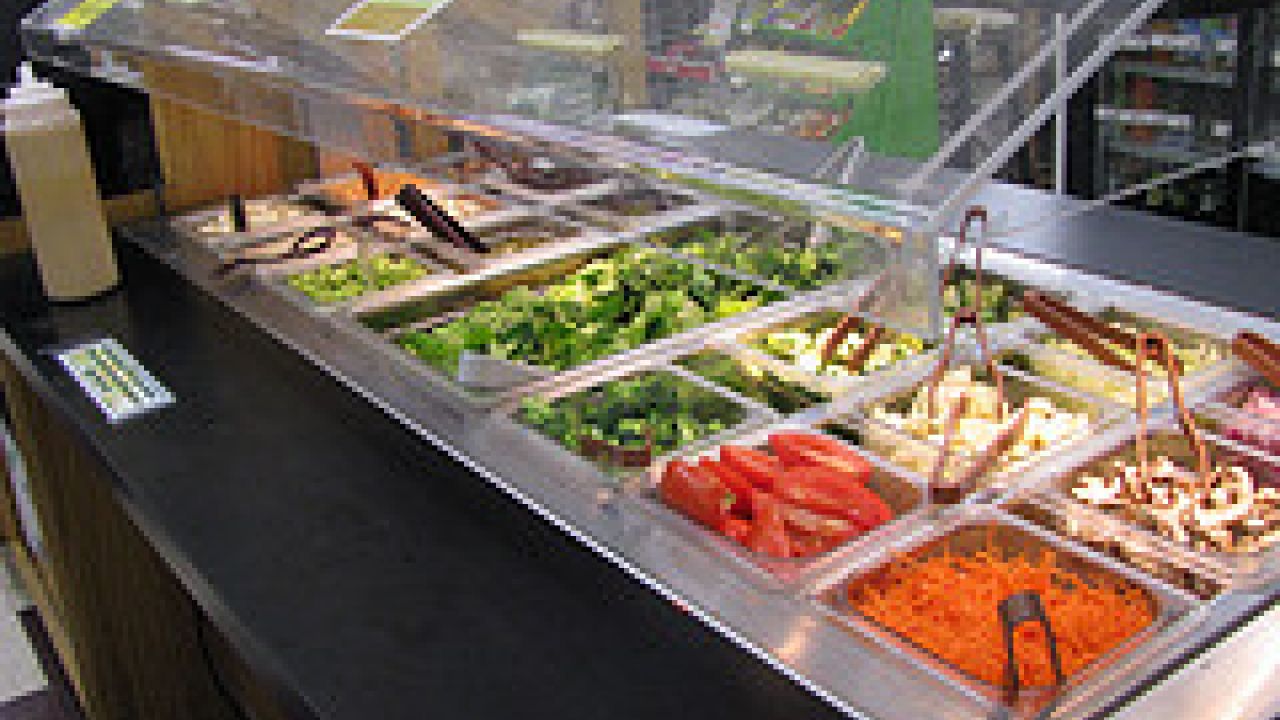
Local bok choy and baby spinach, a mesclun mix with mandarin oranges and broccoli florets topped with Asian chicken strips. No, it's not the lunch menu at Chez Panisse, the influential organic restaurant known for serving up healthy and local cuisine. It's part of Monday's lunch menu at 27 Washington, D.C. public school cafeterias.
These lunchrooms are striving to get young people hooked on healthy foods by offering new salad bars to students. The menu changes are part of a campaign launched by Jeff Mills, the food service director for the D.C. school system, to improve the diets of kids, especially those who live in neighborhoods without stores and farm stands selling fresh produce.
According to the federal Centers for Disease Control and Prevention, the rates of obesity among American adolescents are highest in D.C., a fact not lost on Mills and his colleagues. In the last two years, several schools have started gardens and removed sugar-laden cereal and flavored milk from the breakfast menu.
An initiative called Let's Move Salad Bars to Schools and its partner organizations, including Whole Foods and United Fresh, funded 15 of the new salad bars in elementary and middle schools. The school system bought a dozen more salad bars for high schools. Paula Reichel, program coordinator for the school system's Office of Food and Nutrition Services, told Environmental Working Group:
"For high schools, we felt a larger salad bar (10 feet) was needed to support an increased number of students per lunch period and to provide students with more choice and variety."
Reichel also told EWG she and her team are currently working to put salad bars in all remaining schools through the grant DC received from Let's Move Salad Bars to Schools.
"We feel salad bars are a great addition to any cafeteria," Reichel said. "In middle and high school, they serve the purpose of increasing students' access to school meals as well as encouraging more fresh fruit and vegetable consumption and increasing students' food literacy. For the elementary age group, salad bars expose students to new foods and the repeated exposure increases the likelihood they'll try the items in the future."
Chartwells School Dining Services has been contracted by DCPS to help improve the overall food service in the city's schools, including assisting with the salad bar initiative. Margie Saidel, MPH, RF, LDN, VP for nutrition and sustainability for Chartwells is pro-salad bar:
"Chartwells is very happy to be working with Jeff Mills and the District of Columbia Public Schools to implement the new salad bars in schools campaign. Salad bars are a great way to support and promote the dietary guidelines in school-aged children by encouraging students to make half their plate fruits and vegetables. Chartwells is committed to providing a wide variety of fresh and local fruits and vegetables to the students we serve in a variety of formats, including the traditional salad bar as well as other unique methods of service."
These and other initiatives are part of the Healthy Schools Act adopted by the D.C. City Council and signed into law in August 2010. The new law is a groundbreaking approach to addressing the obesity crisis facing many of DC's children. It emphasizes nutrition and diet, increasing exercise, health and food education and making schools and classrooms more environmentally friendly.
[Thanks to Flickr and NatalieMaynor for the salad bar pic]



